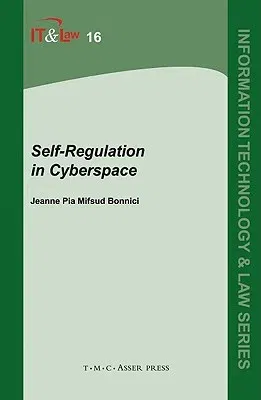Jeanne P Mifsud Bonnici
(Author)Self-Regulation in Cyberspace (Edition.)Hardcover - Edition., 22 May 2008

Qty
1
Turbo
Ships in 2 - 3 days
In Stock
Free Delivery
Cash on Delivery
15 Days
Free Returns
Secure Checkout

Part of Series
Information Technology and Law
Print Length
239 pages
Language
English
Publisher
T.M.C. Asser Press
Date Published
22 May 2008
ISBN-10
9067042676
ISBN-13
9789067042673
Description
Product Details
Author:
Book Edition:
Edition.
Book Format:
Hardcover
Country of Origin:
GB
Date Published:
22 May 2008
Dimensions:
24.38 x
16.26 x
2.03 cm
ISBN-10:
9067042676
ISBN-13:
9789067042673
Language:
English
Location:
The Hague
Pages:
239
Publisher:
Weight:
589.67 gm